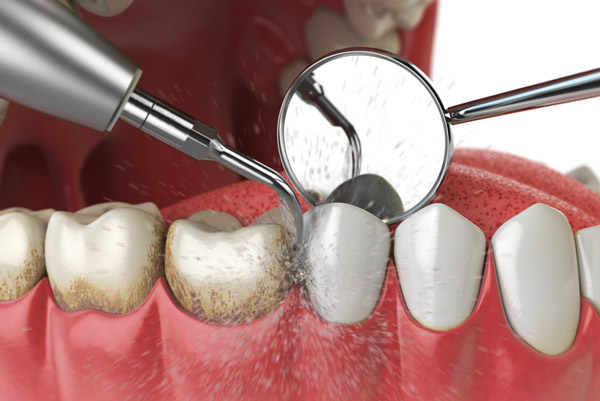Periodontal disease has what we refer to as a “silent” progression. Many of the initial symptoms are painless and often invisible to the naked eye. During your first appointment, Dr. Hakam Al-Samarrai will be able to determine whether or not periodontal disease is present.
We typically perform a comprehensive examination of your teeth and gums to look for potential symptoms. This may include the use of advanced diagnostic tools such as digital x-rays, CBCT scanning, or an intraoral scanner. We usually measure the depths of your periodontal pockets as well. These grooves between your teeth and gums become deeper as the disease progresses.
Periodontal disease has what we refer to as a “silent” progression. Many of the initial symptoms are painless and often invisible to the naked eye. During your first appointment, Dr. Hakam Al-Samarrai will be able to determine whether or not periodontal disease is present.
We typically perform a comprehensive examination of your teeth and gums to look for potential symptoms. This may include the use of advanced diagnostic tools such as digital x-rays, CBCT scanning, or an intraoral scanner. We usually measure the depths of your periodontal pockets as well. These grooves between your teeth and gums become deeper as the disease progresses.
If you are diagnosed with early or moderate periodontitis, we may recommend scaling and root planing. Scaling and root planing, also known as “deep” cleaning, is usually the first and most common treatment for periodontal disease. While similar to regular cleaning, there are a few minor differences.
Much like regular cleaning, the procedure is designed to eliminate plaque and tartar from the surfaces of your teeth. However, deep cleaning is also designed to smooth out the surfaces of your roots. This ensures that plaque, tartar, and bacteria will not re-adhere below the gumline (with the proper periodontal maintenance).
After scaling and root planing your gums should return to a pink, healthy state. Your periodontal pockets should also return to their normal depths. Unfortunately, those with a previous diagnosis are at a much greater risk for a reoccurrence.
To prevent the return of periodontal disease, we may recommend regular cleanings at more frequent intervals. Dr. Hakam Al-Samarrai will be able to determine how many cleanings you need to maintain proper periodontal health. Improvements to your daily oral hygiene routine will also keep plaque and tartar at bay.


